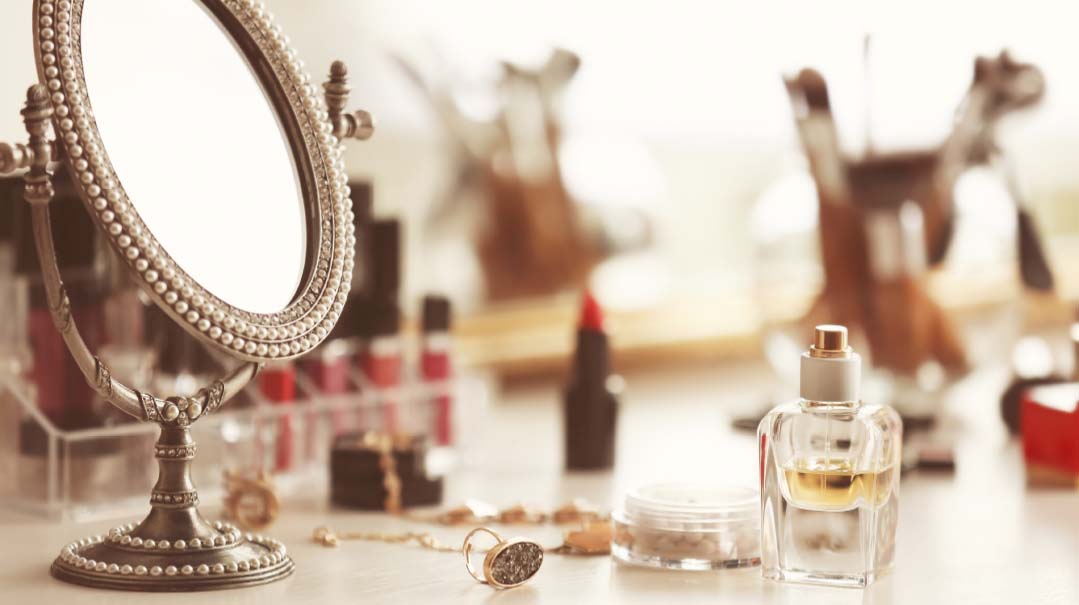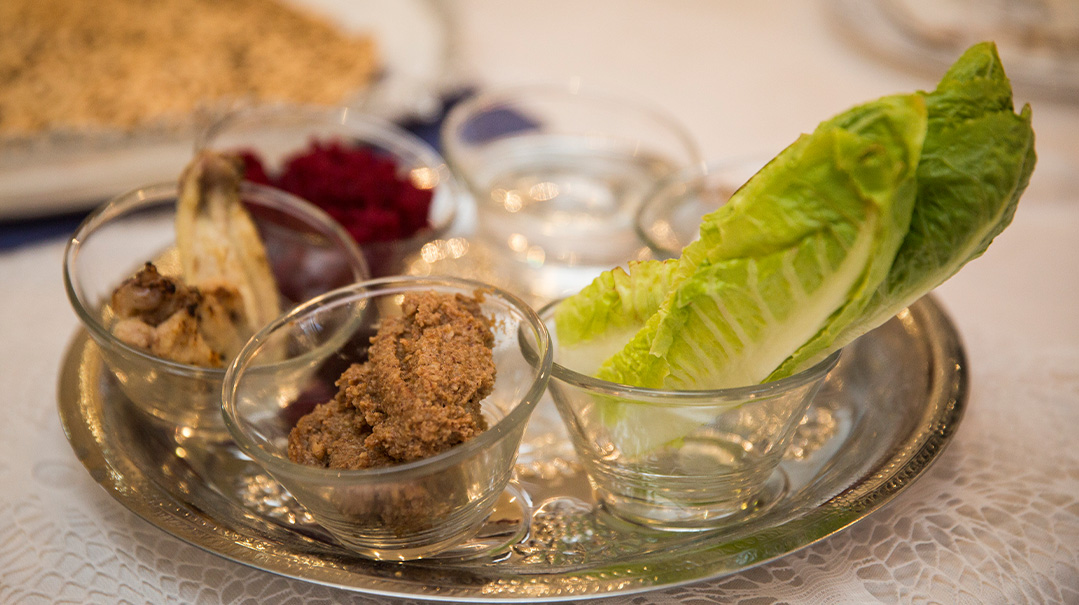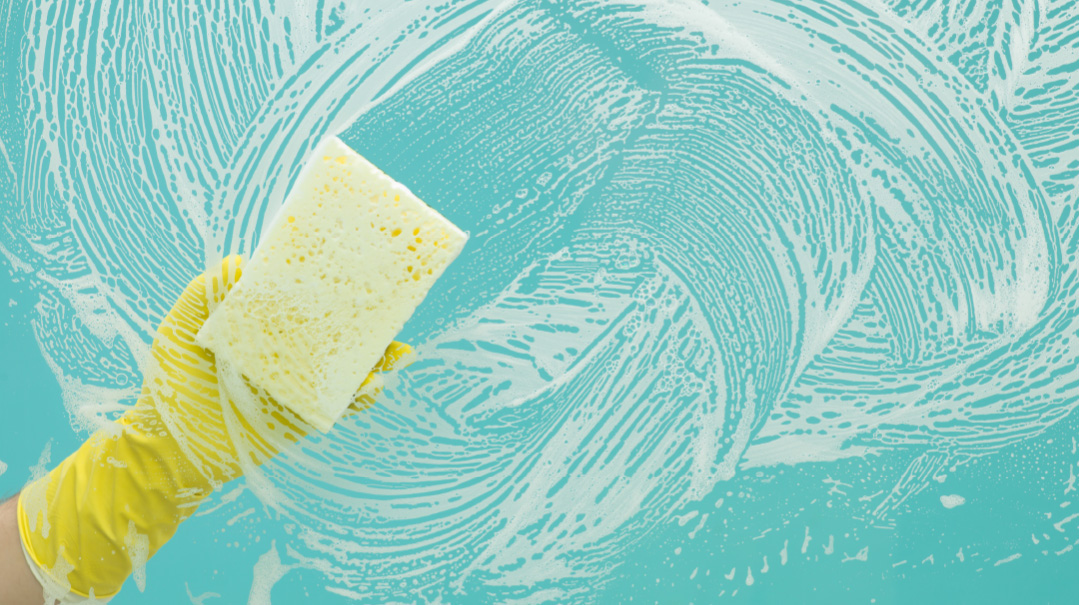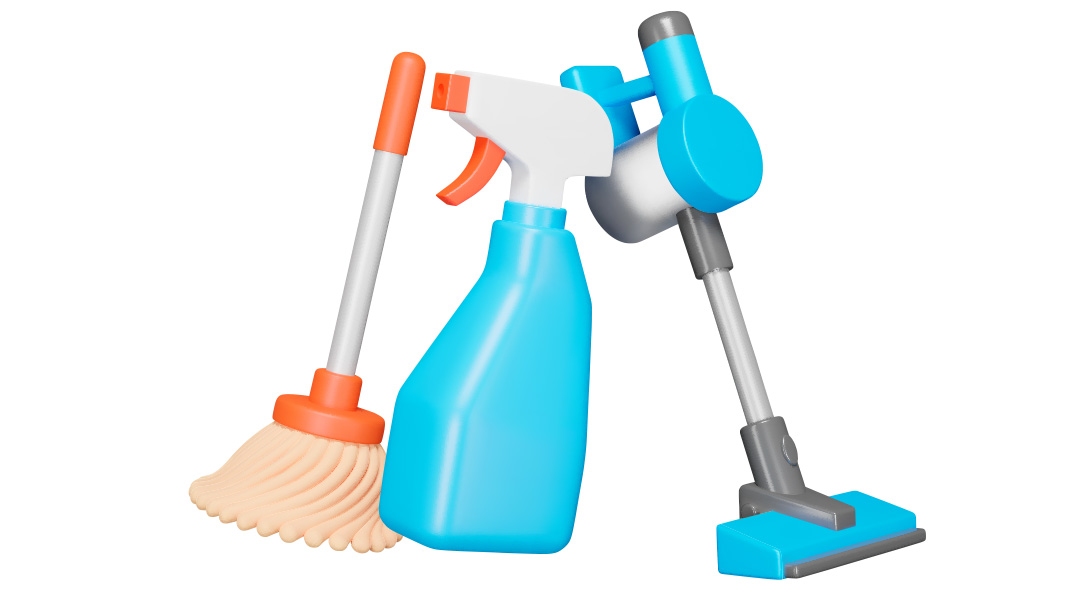I’m Bobby
| October 5, 2021“Bobby?!” She’s incredulous. “Really? It’s so…” She doesn’t finish the sentence

I’m babysitting my newborn grandson for the first time. He’s barely six weeks old, attempting to crank out his first wavering smile.
I pull up to our house, and I’m unbuckling his carrier from the back seat when Naomi, one of my neighbors, walks by.
“He’s so sweet!” she exclaims.
I couldn’t agree more.
I’m puffed up like a proud peacock showing off his fine feathers. I should be wearing a T-shirt that proclaims “New Grandma,” although the beaming smile on my face says precisely that.
I tell Naomi that I’m babysitting, that my daughter had a “night out” with the staff at the elementary school where she’s the first-grade teacher. I explain that she decided it would be good for her to go, even though she’s officially on maternity leave.
“Amazing, so baby gets a night out with Savta!” she says.
Most of our neighborhood is comprised of olim, native English-speakers. We all made aliyah about 15 years ago, more or less. In those days, these streets were crammed full of our noisy kids playing jump rope and basketball and Capture the Flag.
In recent years, a relative quiet has settled, as the kids grew up, got married, moved away. Quiet, that is, until the ranks of boisterous grandchildren began arriving, bli ayin hara. Naomi’s house often sounds closer to a zoo when her marrieds descend on her, grandchildren in tow.
Yet all these years in, we’re still primarily an English-speaking community, for better or for worse. Some of us shop on Amazon or have people bring in our favorite brands when they return from trips to America. Some of us still think in dollars or work online for American businesses. I only just recently became a full-blooded Israeli when my beloved and enormous Maytag washing machine finally gave its last breath. In its place now sits a tiny, compact eight-kilo European model that takes three hours and 20 minutes to wash four pairs of socks. (Oh, but those socks were never so clean!)
But I lose my train of thought. (I’m allowed to! I’m a grandmother!)
Ah, yes, Savta.
I think as much as we all love our little Anglo corner of Israel, we feel somewhat embarrassed of our failure to fully integrate. And for many of my friends, being called Savta is the go-to remedy for that stigma. “See, they call me Savta. I’m sooooo Israeli!”
My own daughter had actually gone ahead and married an Israeli boy who didn’t speak a word of English, something that sent shock waves through our community at the time. So it was natural for Naomi to assume I’d gone the Savta route.
“Oh, I’m not Savta,” I say.
She’s surprised.
“Grandma? Nanna?” she asks.
Nope.
“I’m Bobby!”
“Bobby?!” She’s incredulous. “Really? It’s so…” She doesn’t finish the sentence.
I finish it for her. “I know. You don’t have to tell me. It’s so alte heim. But if you knew my two bobbies, if you could have seen them only once, you’d understand.”
And I tell her all about them.
Once upon a time, I had two bobbies, two very Hungarian bobbies. One was tall and dark-haired, the other petite and blonde. They lived but a few blocks from each other in Boro Park. My Bobby Shari, my father’s mother, had only my father. My Bobby Erzsi had two children, my Uncle Volvi, who moved to Israel when I was a baby, and my mother. So for all practical purposes, the five of us, my brothers and sisters and I, were the only grandchildren.
Our bobbies and zeidies from both sides were best friends. Every yontif saw all four of them sitting together around the kitchen table having coffee and cake. When we slept over at their house o Shabbos, we’d walk with them from one to the other.
At our Seder table every year, the two zeidies sat like royalty in their kittels at the head of the table, their arms around each other as they sang the Haggadah. At the other end, my two bobbies and my mother had their heads close together in intense conversation in rapid-fire Hungarian.
Living right near them, I grew up in the glow of the absolute adoration and devotion only a real Hungarian bobby could give. And how they gave. In post-Holocaust New York, we were their miracle, their light, their utter pride and joy, their reason for living.
Bobby Shari sewed for us: Purim costumes and Shabbos robes and beautiful dresses copied from what my mother showed her in fashionable stores. Her “den,” as we called it, hummed constantly from the sewing machine that folded into its own table, her knee pressing to operate the pedal. She sewed dresses for our dolls as we played with scraps of material and listened to Pirchei records scratching on the record player on long Sunday afternoons.
Sometimes she put on “Fiddler on the Roof.” She loved to croon to us, “Is this the little girl I carried?”
Bobby Shari kept all her extra buttons in a beautiful polished wooden box my zeidy had carved himself. How we loved that button box! My sister and I would play wih it for hours, arranging and rearranging those buttons; the pearl ones and the flower-shaped ones, the ones with diamonds in the center and the ones that looked like shiny blackberries. The buttons would be candy or jewels or chocolates.
When we tired of that, she’d take us into her room, sit us in front of the mirror at her dressing table, so that we could try on all her necklaces — long strings of beads or pearls or crystals, every color of the rainbow — all smelling sweetly of her perfume. We’d run her carpet sweeper up and down the hallway (which never needed cleaning, her house was always shining).
We had tea parties for our dollies using her real silver tea service, and nothing could give her more pleasure. I washed my dolly dishes in her milchig sink while my zeidy washed the real ones in the fleishig sink. On long summer Shabbos afternoons, she served us perfectly sliced strawberries sprinkled with sugar on delicate porcelain dishes on her front porch. She would call out to her neighbor, “Haydee, come see my eineklach!” Nothing could make her happier.
When we rang that front bell, an actual bell with long metal chimes, we could hear her rushing to answer the door, joyfully exclaiming, “Who is here, who is here?”
I can still taste the crusty hot bagels with salt she bought us on 13th Avenue every week.
Bobby Shari was tall and elegant and classy. She worked for my father, running his accounts, and always dressed to the nines at the office. She had hundreds of pairs of shoes stacked up in boxes in the closet (or so it seemed to me). She always wore heels, except in Florida, when she wore immaculate white sneakers with the cutest little bobby socks with pom-poms on them, with a white pleated skirt, no less. That was casualwear.
She always wore sunglasses, and a silk scarf she tied just so around her neck. She wore necklaces of varying lengths, but she knew how to pull it off, it was never tacky or overdone.
I remember when I went to see her for the last time; she was heading off to chemotherapy in high heels and bright pink lipstick. She knew it was the end, but she told me, “I want you to remember me this way.” And I do.
Bobby Erzsi was short and adorable and a true Hungarian balabusta, down to the plastic-covered couches in the living room. I remember when she had a new white tile floor laid in her kitchen, and when I came to see it, it was covered end-to-end in old shmattehs.
“Bobby, I can’t see the new floor,” I protested.
She gingerly lifted one corner to proudly show me, then hurriedly replaced it. “It shouldn’t get shmootz on it,” she explained.
Bobby Erzsi worked in a fancy cosmetic store on 13th Avenue, at the perfume counter, where she was adored by the other clerks, all who were at least 40 years younger than her. She spent her entire salary on buying every fancy new makeup product that came in, and then distributed bags of it to us like candy. Until today my medicine cabinet is stocked with rows of Estée Lauder and Lancome and Elizabeth Arden products in brand-new boxes.
On Sundays we would drop in to see her at the store, and she would run around the mirrored and glass counters to hug us and proudly make her rounds to show us off to Annie and Mary and Lisa and all the other clerks.
“Mammeleh, I have to run, I have a customer vaiting for me,” she would say. (“V” was “w” for her, as “ch” was “h” and “z” was “th” — think “cheppy birzday.”)
At home she taught me everything: how to fold pajamas perfectly, how to make a bed neatly, the correct order for applying makeup (I think I was only ten then). “You have to be neat, it’s the only vay.” As was being “ambitious,’’ her highest and most supreme compliment. That and “chic.”
It only follows that her worst — whoops, vorst — curse was “lazy.” Having lost her entire world to the Nazis, she valued hard work and independence above all else.
But Bobby Erzsi was so much more than that. She sang to us for hours, taught us Hungarian lullabies. (“Az sa seip haki neka sema keik — there’s the girl with the beautiful blue eyes,” which I have!) She served us four-course breakfasts when we visited her in Miami every winter, starting with the crunchiest Saltine crackers and cheese, followed by toasted bagels with tuna made with hard-boiled eggs, kokosh cake, and then the chocolatiest chocolate milk.
She marched relentlessly up and down her apartment for an hour, and enthusiastically pumping her arms with vigor, saying “you have to be slim.” Sometimes she would recruit me and I would get to be Jane Fonda and lead an exercise class on towels on the floor, while she huffed and puffed along with me.
She told me the story of her life, before and during and after the war. Each time, somehow, the story became more embellished. The Hungarian soldier who threw food over the barbed-wire to her in Auschwitz later came to be hopelessly in love with her and wanted to get her out to take her away with him. (Not so sure about that. But it was certainly entertaining.)
I could listen to her for hours. And she could tell me about it for hours. Her stories never got boring or repetitive to me. (Another reason I looked forward to grandmotherhood: a fresh audience to regale with the undeniably fascinating story of my life without eyes being rolled at me pointedly.) I loved being in her sparkly, upbeat presence.
At my wedding, she looked like a shining blonde princess in her pink sequined gown, and when she grabbed me to dance in the middle, I couldn’t keep up with her fast enough. Bobby loved music, loved to dance. When at 90 years old she had heart surgery to replace a valve, the first thing she asked for in the ICU was her eyebrow pencil.
Those were my two bobbies.
On Pesach or Succos when we came downstairs in our new yontif dresses, we’d twirl around for them while they clasped their hands together in ecstasy, “Oy, nodyam seip! Chinush!” Shabbos afternoons in Boro Park saw them sitting together with their friends on the living room couch while my sister and I put on our weekly grand performance of “Cinderella,” complete with Bobby’s feather dusters and aprons. They and their friends would clap “Bravo!” and sit in animated suspense even though we never varied the repertoire.
They marched us up and down the boardwalk in Miami to proudly show us off to all of their friends (the official boardwalk language in Miami was, you got it, Hungarian). They stuffed us with compote and kapusta and hubbard krumpling and ruppert krumpling and kreimish cake and stuffed carp and chremselach and kapusta-shtaista.
I have my grandmother’s recipe for kapusta (stuffed cabbage), salvaged by my aunt. Erev Rosh Hashanah and Succos it simmers for hours and the rich, heavy aroma brings my bobby so close I can almost hear her voice.
To me, a bobby was Gan Eden itself. It was being loved and cared for and adored and protected and loved some more.
I remember when my Bobby Shari was niftar, how when they buried her on Har Hazeisim it seemed to me that the kever was too tiny for her long, elegant frame. It hit me then how you take nothing with you when you go. Oh, but how much you leave behind! The memories and the warmth and the emotions they evoke fill endless treasure houses in my mind and my heart.
I knew then what a bobby is, and I knew that to be such a bobby takes patience and skill and devotion. I silently promised myself that that’s what I would do one day.
Years later, Bobby Erzsi left This World on the very night my oldest daughter, Yael, a young newlywed, was hospitalized in the emergency room. Only a few days later did we discover she had cancer.
I had no time to process the loss of the bobby I loved as we raced from the ICU to oncology to hematology, reeling in shock. At the time my brother told me, “There’s a link. Bobby passing on as your daughter fights for her life, water around their hearts, both of them.”
I couldn’t pay attention then. But I do now. As I drove home alone at midnight from the hospital, that very first night, I vividly recall crying out loud in the car, calling out, “Bobbies, I need you! Go daven to Hashem for us!” I felt their presence nearby, smelled their perfume, held them close when I needed it.
And so my dream was to be a bobby. But the road there was not to be simple. After my daughter recovered, there were still years of pain and healing and longing.
Last year, when I was in the US for a niece’s wedding. I made up my mind to go daven at the kevarim of my bobby and zeidy buried in New Jersey, a two-hour drive from where I was staying.
It was January, the dead of winter. I set the alarm for 4:30 a.m. I wanted to get there before there would be traffic on the Turnpike. I pulled up to the cemetery at 6:30 a.m.
Living in Israel, you forget what cold is. My fingers and toes almost froze off and that was with gloves. I found my zeidy’s kever. I’d been there many times before we made aliyah.
And then I found Bobby Erzsi’s kever. I stood before it. I lowered my head, my eyes filled with tears, and my aching heart spilled over.
“Bobby, Bobby, Bobby…” I sobbed. I was once again a little girl, and this was my bobby who would do anything, be everything.
“Bobby,” I called out into the silent, icy dawn. “Do you know what’s happened? Do you know about Yael, about her cancer? Do you know how hard it is, Bobby? She has no children. Bobby, help me, daven for me, I want to be a bobby!”
I stood for a long time and alternately cried and froze and cried and froze as I davened to Hashem that in the zechus of this great woman, my bobby, both my bobbies, I would be zochah to be a bobby.
Nearly six weeks ago, I was granted that zechus when Yael gave birth. I want to pinch myself when I cradle and caress and inhale the intoxicating brand-new-baby scent of my first grandchild, who sleepily blinks his eyes at me, wondering who I am.
My sheifeleh yingele, my zeesa tayere bubba pofaya, egya megya husha—
You know who I am. I’m your bobby.
Not Savta, not Grandma, not Nanna.
I’m Bobby.
How could I be anything else?
(Originally featured in Family First, Issue 762)
Oops! We could not locate your form.







